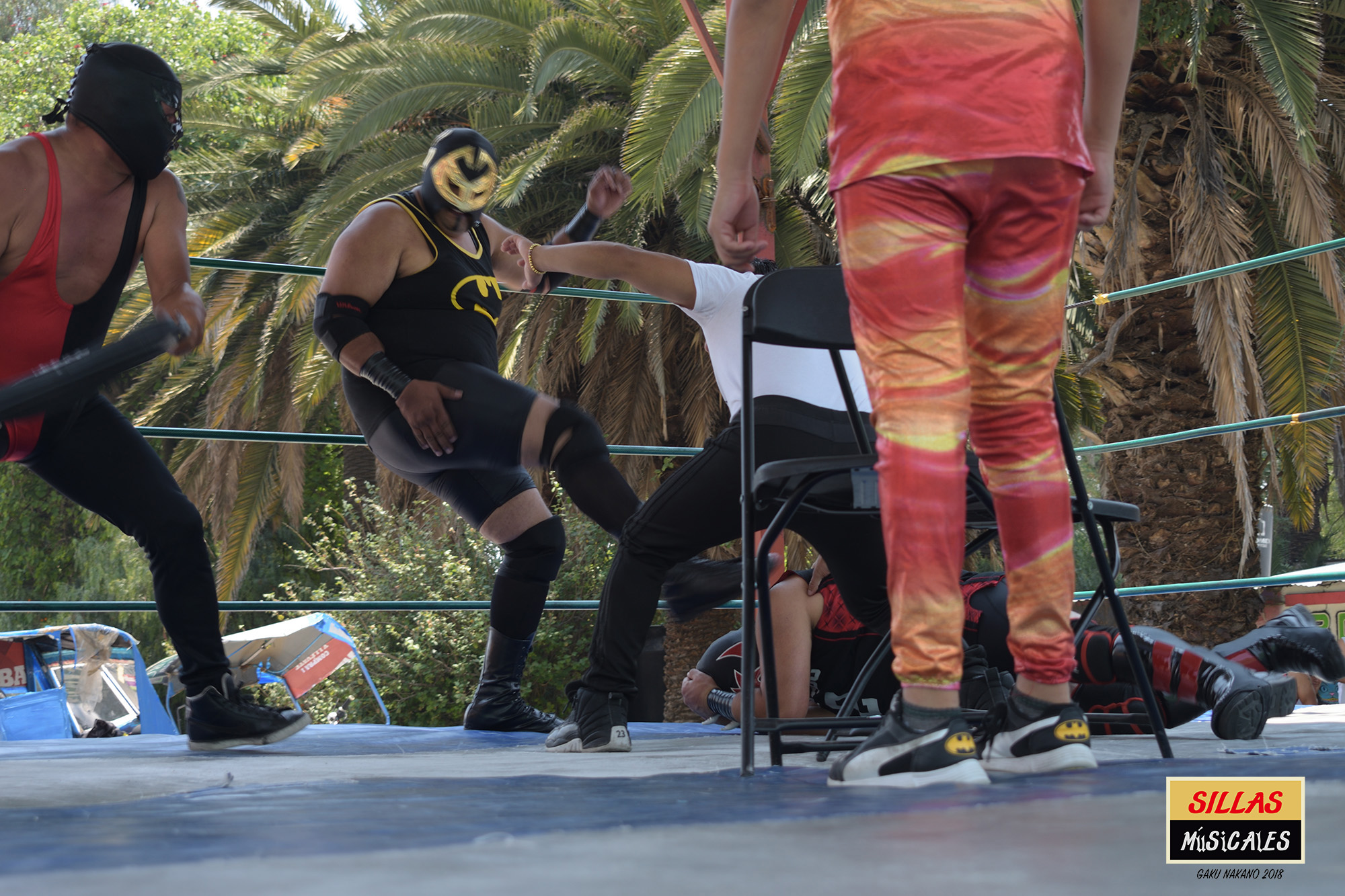


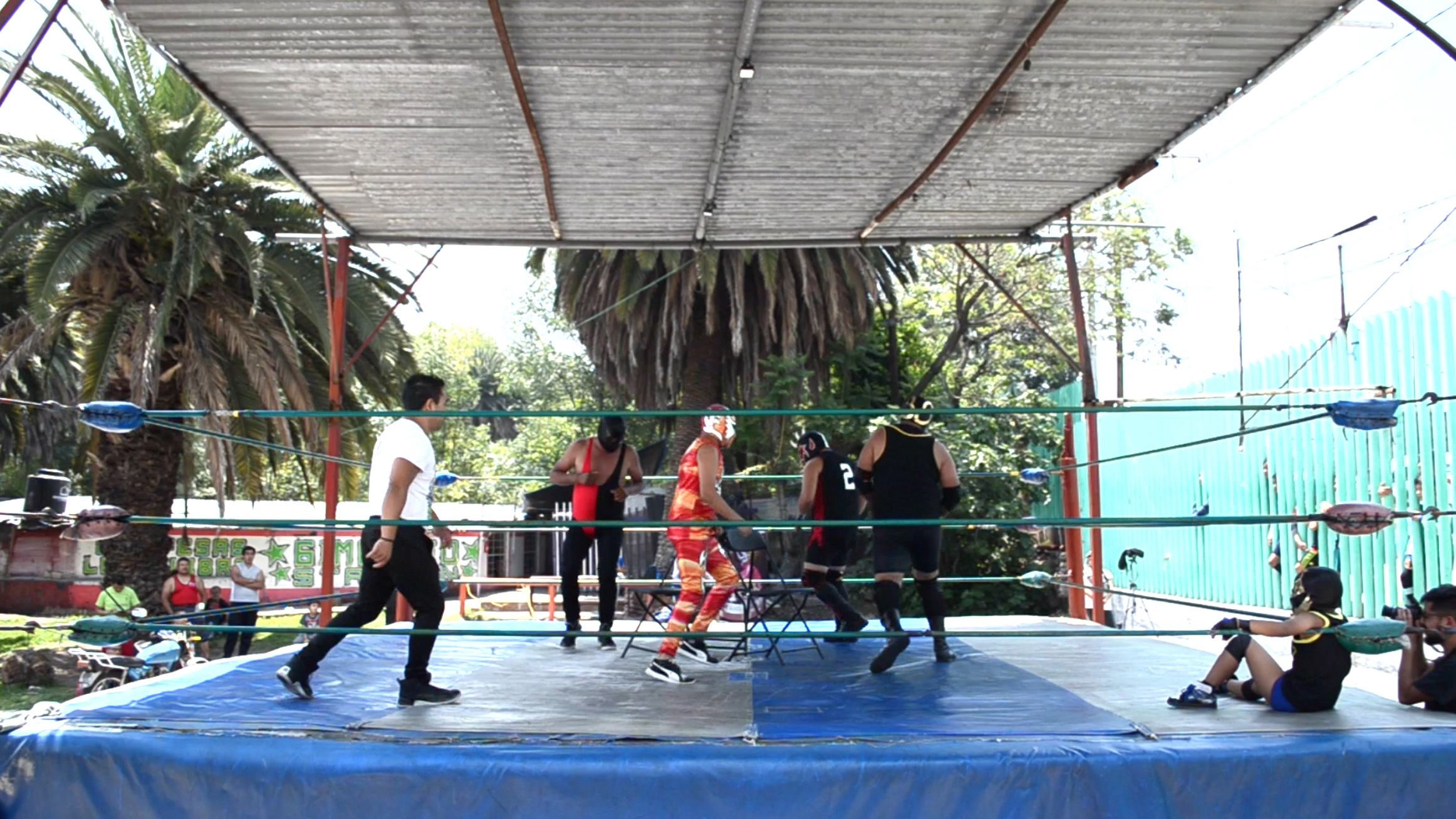

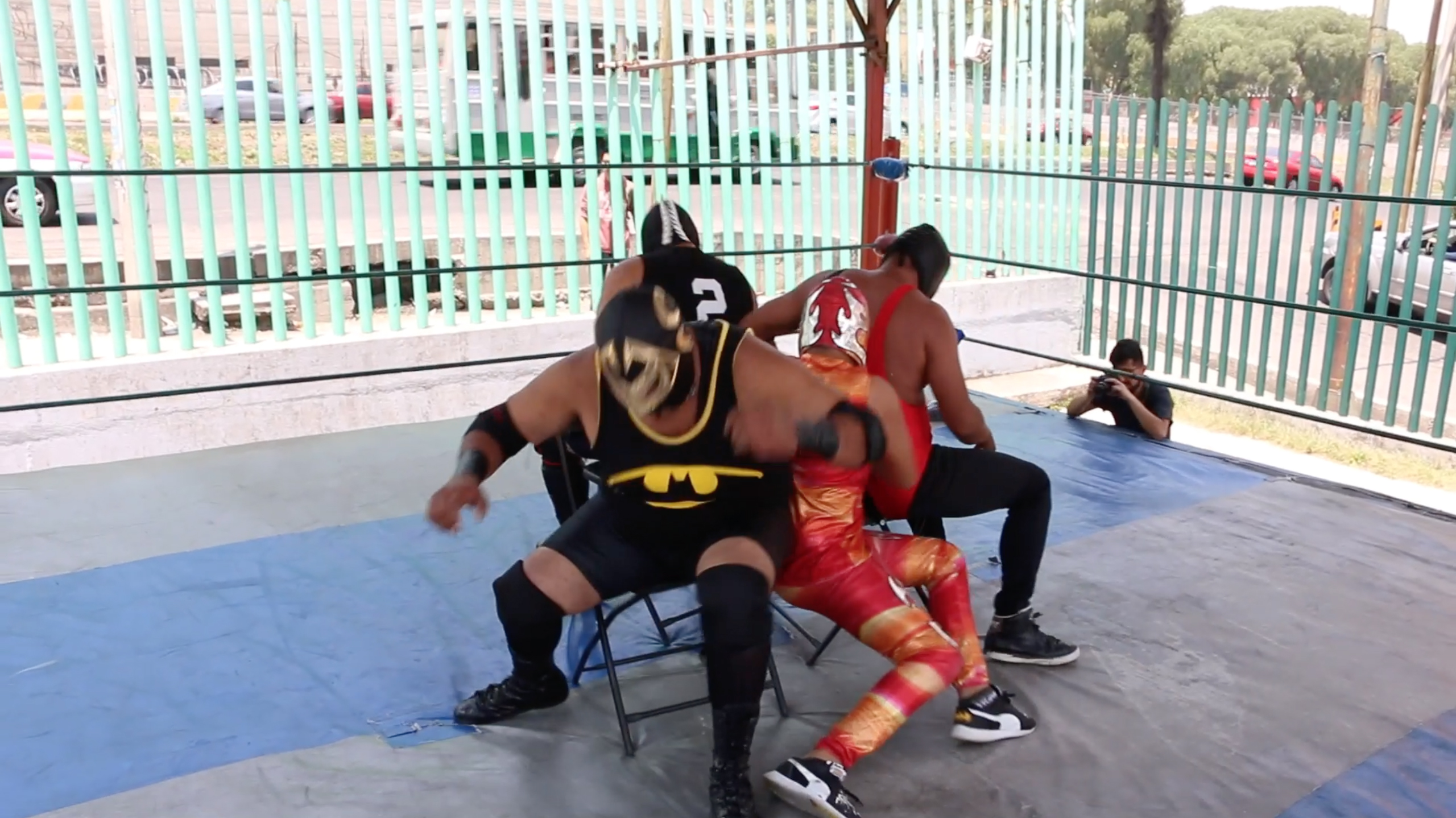
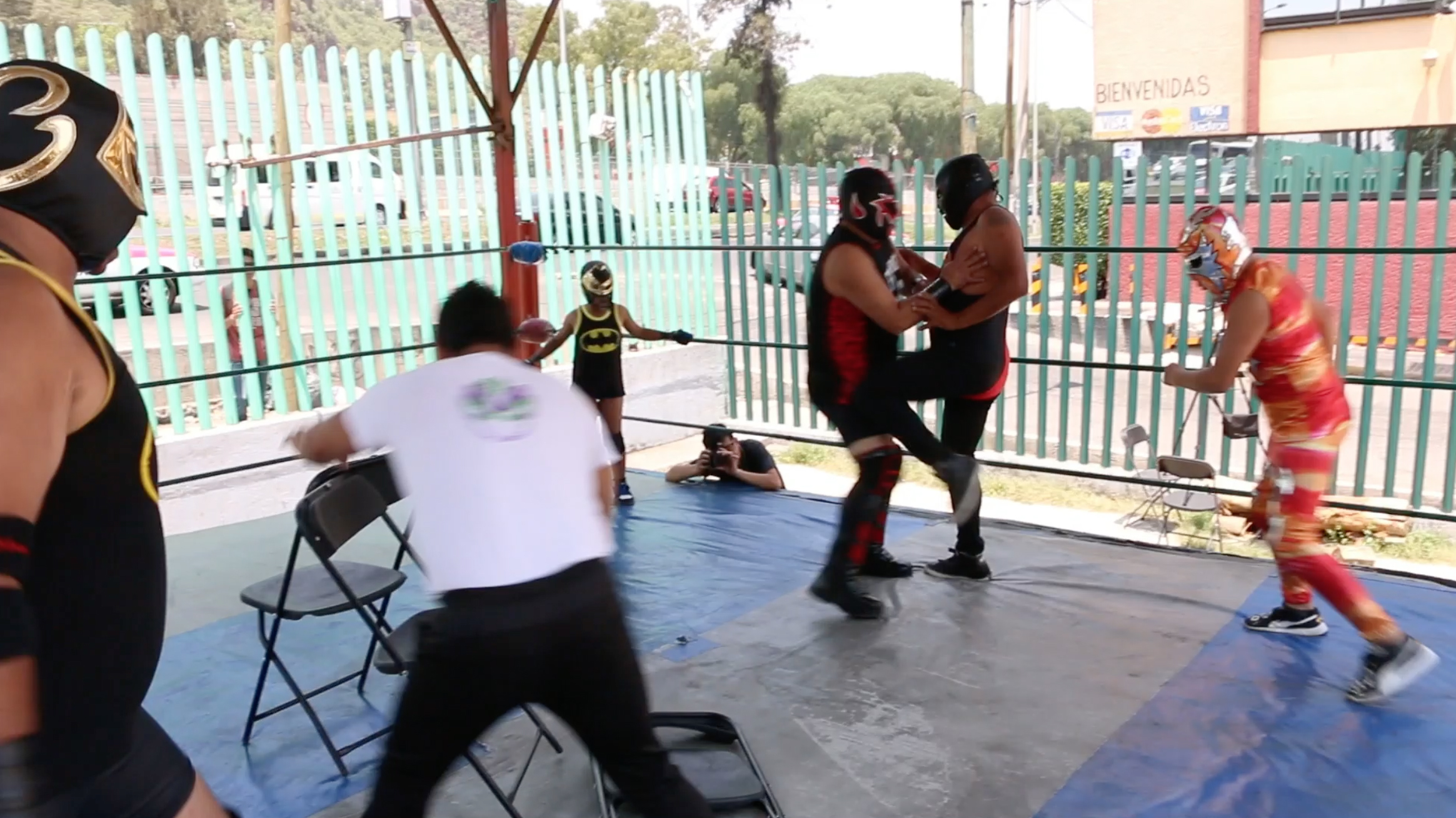
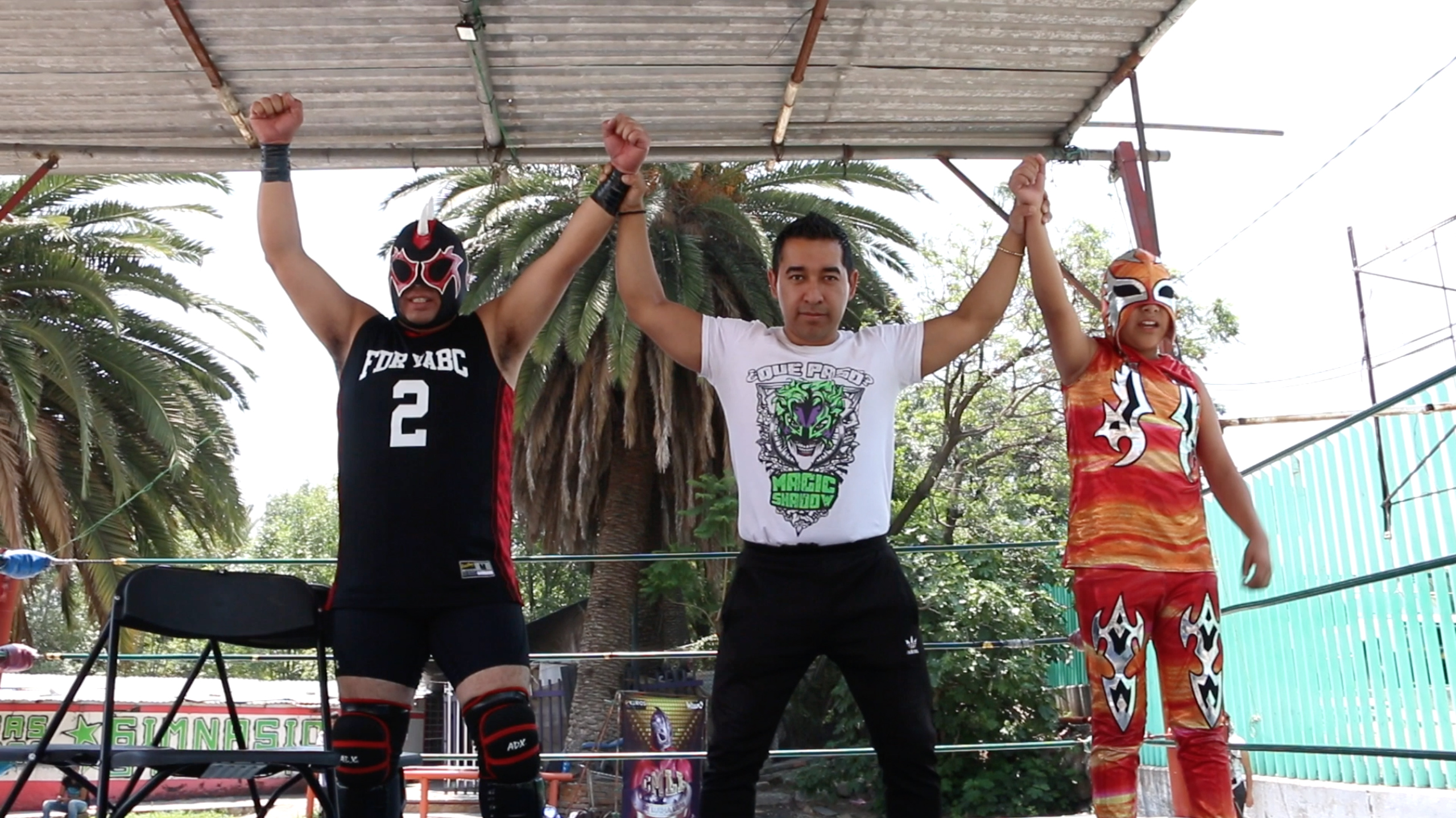
ルチャ・リブレ(メキシコのプロレスリング)がポップカルチャーとなっていった背景では、並行してメキシコ革命や長期に渡る左派と政府の武装闘争が起きていた。そうしたメキシコ特有の社会状況は、ルチャ・リブレの発展に少なからず影響を与えていたことだろう。
その格闘の世界は過激な暴力がエンターテイメントであるために、すべての事実はパフォーマンスの演劇性によって現実と区別される。それゆえにその世界に関わる全ての出来事の真偽を見分ける必要はない。こうして必要悪を自由に再現できることによって、ルチャ・リブレはエンターテイメントやスポーツだけにとどまらず、戦中・戦後における倫理観を問う存在として時代に求められたのかもしれない。
《椅子取りゲーム》は、椅子が“Foreign Object”(試合中に使用される凶器の総称)の記号的な存在であることや、その遊びが世界中で親しまれていることから着想を得た。私はこのレスラー達による椅子取りゲームを通して、椅子が信頼し合う(エンターテイメントであるという設定を守る)関係の上で武器となり、過激なやりとりの実現が逆説的に信頼関係を強くすることに触れた。
In the backdrop of Lucha Libre (Mexican professional wrestling) becoming a part of pop culture, there were parallel occurrences of the Mexican Revolution and the long-standing armed struggle between the left-wing and the government. These unique social conditions in Mexico undoubtedly influenced the development of Lucha Libre.
Within the realm of wrestling, where extreme violence is entertainment, all facts are distinguished from reality through the theatricality of performance. Therefore, there is no need to discern the truthfulness of all events associated with this world. By freely reproducing this necessary evil, Lucha Libre might have been demanded by the times not just as entertainment or sport but also as a reflection on ethics during and after war.
The "Musical Chairs" drew inspiration from the symbolic presence of chairs as "Foreign Objects" (a general term for weapons used during matches) and the universal popularity of the game. Through this game played by wrestlers, I explored how chairs, within the context of a trusted (entertainment-based) relationship, could paradoxically become weapons, thereby reinforcing trust through intense interactions.
[1]-[5]ドキュメント, [6]-[10]キャプチャ画像, 映像7分46秒, メキシコシティ
2018
[1]-[5]Document, [6]-[10]Captured imaged from video, 7'46", Mexico City
2018
60 x 42 cm, inkjet print on paper

43 x 97 cm, metal folding chair, 2018

"Relational Dialogue" at Token Art Center, 2020
© 2011- Gaku Nakano